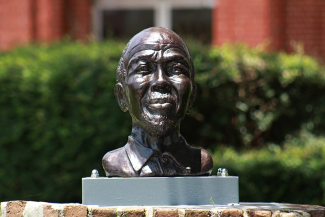
Oluale Kossala landed on American soil in 1860. Though the slave trade was illegal by then, he and more than 100 others were captured from their West African homes, sold into slavery, and sent to Alabama.
His captors called him Cudjo.
He spent the next five years of his life enslaved, until the Emancipation Proclamation was instituted. He was technically free – but after attempting to return home to Benin, Cudjo discovered it would be far too expensive on his meager, unfair wages!
Stuck in America, he and 30 other formerly enslaved Africans decided to join their fates together.
They pooled their money and collectively bought land, calling their new community Africatown. Here they spoke their native language. They revived Yoruba traditions that were stripped from them in captivity. They created their own schools, churches, and businesses to support themselves.
It was a safe haven from white Americans and their cruelty.
Cudjo lived to be about 94, one of the last known survivors of slavery.
In those final years, alongside famed author Zora Neale Hurston, he recorded for the world his disturbing yet inspiring story of capture, enslavement, and self-liberation.
Learn more about Cudjo Lewis on Black History Year’s recent podcast episode, “Africatown and the Essence of Black Power.” We sit down with Hampton professor and historian Dr. Natalie S. Robertson, as she expands on Hurston’s work, the importance of Africatown to Black America today, and the essential elements of Black empowerment.
Stream Black History Year anywhere you find podcasts. It’s time to reclaim our Black power!